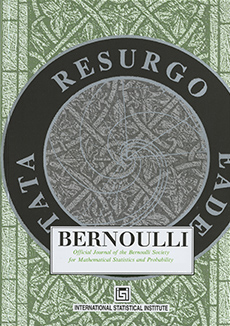Abstract
Consider an i.i.d. sample from an unknown density function supported on an unknown manifold embedded in a high dimensional Euclidean space. We tackle the problem of learning a distance between points, able to capture both the geometry of the manifold and the underlying density. We define such a sample distance and prove the convergence, as the sample size goes to infinity, to a macroscopic one that we call Fermat distance as it minimizes a path functional, resembling Fermat principle in optics. The proof boils down to the study of geodesics in Euclidean first-passage percolation for nonhomogeneous Poisson point processes.
Acknowledgments
We want to thank Daniel Carando, Gabriel Larotonda, and Chuck Newman for enlightening conversations and the team of Aristas, especially Yamila Barrera and Alfredo Umfurer, for useful discussions and the implementation of Fermat distance related algorithms. We also thank Steven Damelin and Daniel Mckenzie for private communications that helped us to clarify our respective contributions.
Citation
Pablo Groisman. Matthieu Jonckheere. Facundo Sapienza. "Nonhomogeneous Euclidean first-passage percolation and distance learning." Bernoulli 28 (1) 255 - 276, February 2022. https://doi.org/10.3150/21-BEJ1341
Information





